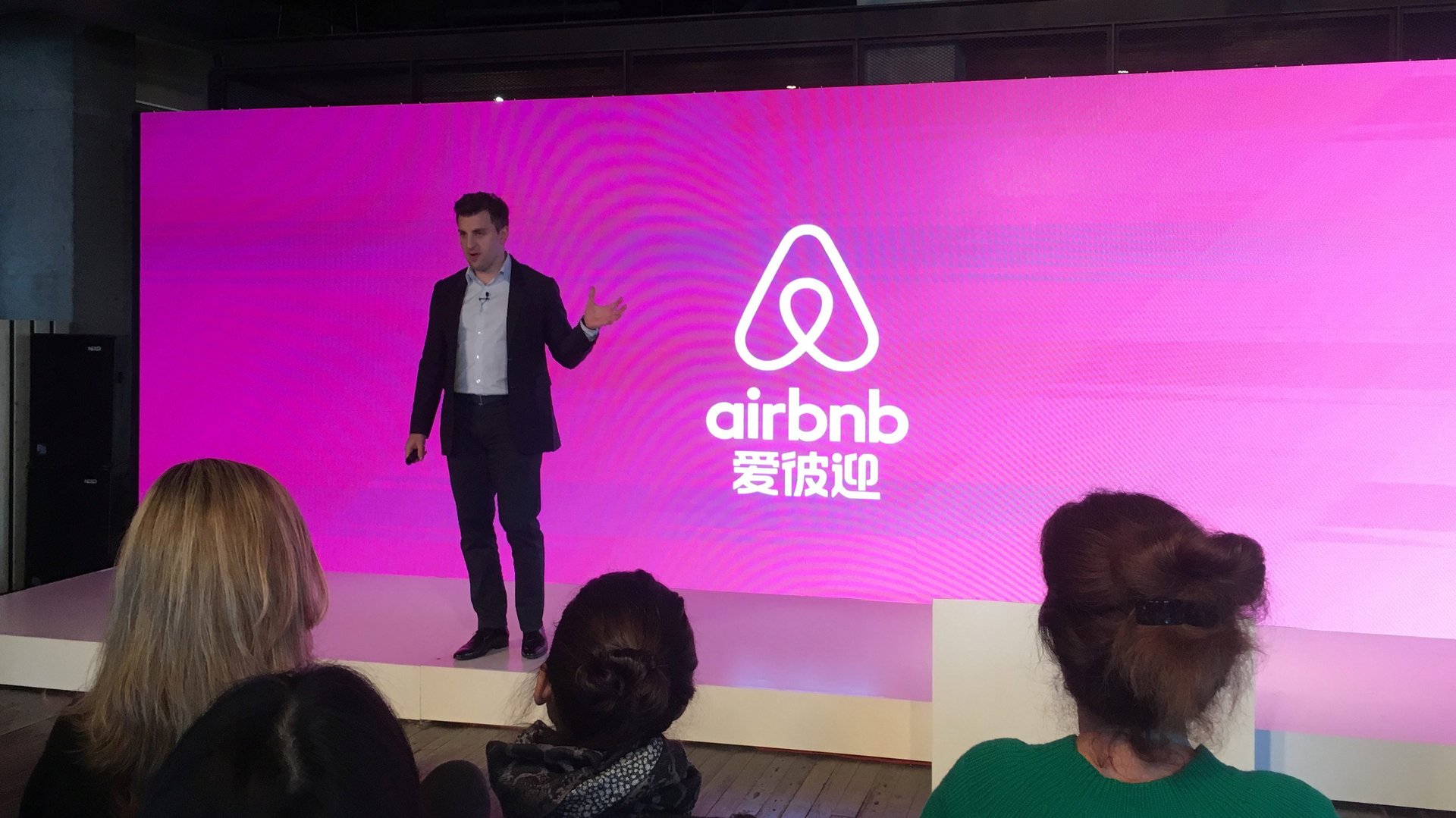China’s consumers hate Airbnb’s new Chinese name so much that they are brainstorming a new one
Airbnb is now known as something different in China.


Airbnb is now known as something different in China.
On Wednesday (March 22) the home-sharing service announced it would be known as “Aibiying,” or 爱彼迎, in China. The Chinese name translates as “welcome each other with love,” a reflection of Airbnb’s mission to bring together people from communities all around the world, the company explains in a statement.
It is clear that Airbnb is betting on the name change to win over the Chinese market, which is notoriously difficult for foreign tech companies to crack, given both cultural and regulatory hurdles. (For the latest evidence, just look at Uber.) Currently Airbnb only has 80,000 listings in China out of over 3 million worldwide, way behind its biggest Chinese rival Tujia. Airbnb also announced it would double investment and triple the size of its staffers in China this year.
Is Aibiying a good choice for the startup? The answer is yes, on the surface. The Chinese name, pronounced “eye bee ying,” doesn’t sound too far from Airbnb. Besides, the three characters 爱, 彼 and 迎, do carry the positive meanings of ”love,” “each other” and “welcome” separately, and turn into a complete message, as the company points out.
Chinese consumers, however, aren’t buying it. After the announcement, Airbnb posted a promotional video (link in Chinese) about the name change on China’s popular microblogging site Weibo. The post was soon taken over by trolling bloggers.
“It sounds so horrible. Please tell your boss about that,” wrote one Weibo user. The comment has attracted more than 150 likes, the most under the post. “You guys need a Chinese-language consultant,” another said.
There are two major complaints about the name. For one, Aibiying is difficult to pronounce in Mandarin. If you read “bee ying” quickly, it becomes “bing.” Many Chinese bloggers also argue that the name sounds a bit, well, too loving. For example, if you switch 爱彼迎 to similar-sounding characters like 爱必硬, the adjusted name translates to “love must be hard,” which might be a brand for sex pills.
Chinese internet users proposed names they liked better for Airbnb. Some of the most popular suggestions include Aibi, or 爱彼, which is simply easier to read; and Aibilin, or 爱彼邻, which translates as “love each other’s neighbors.”
In fact, Airbnb might have some other options. It has registered 11 Chinese-language trademarks in China, according to Shanghai-based news outlet the Paper (link in Chinese), which cited information from China’s trademark office website. Those trademarks include Aibiyou, or 爱彼游, which means “travel with each other with love,” and Jiazaisifang, or 家在四方, which translates as “home is everywhere.”